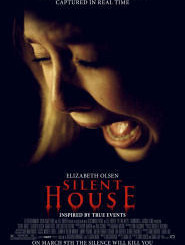 Universal has announced that it will not be releasing Tower Heist to premium video on demand just three weeks after the film premiers in theaters as it previously planned to. The move comes in response to numerous complaints from theater owners that a three week window between theatrical release and on demand availability would cut into their potential profits.
Universal has announced that it will not be releasing Tower Heist to premium video on demand just three weeks after the film premiers in theaters as it previously planned to. The move comes in response to numerous complaints from theater owners that a three week window between theatrical release and on demand availability would cut into their potential profits.
Universal released a somewhat apologetic press release with the announcement.
Universal Pictures today announced that in response to a request from theater owners, it has decided to delay its planned premium home video on demand (PVOD) experiment in which Comcast digital subscribers in Portland and Atlanta would have had the opportunity to rent TOWER HEIST on demand just three weeks after its theatrical release on November 4, 2011. Universal continues to believe that the theater experience and a PVOD window are business models that can coincide and thrive and we look forward to working with our partners in exhibition to find a way to experiment in this area in the future.
Cinemark was the first theater chain to weigh in on the announcement earlier this week by stating that they would not book the movie if Universal insisted in going forward with their plans. Yesterday, regional chains Regency Theatres, Galaxy Theatres and Emagine Theatres also stated that they would not boycott the film as well. This morning, National Amusements announced that their 950 screens were also off-limits to Tower Heist, bringing the combined total of screens not available for the film at just over 5000, or 13% of the total number of screens in the US.
The National Association of Theater Owners issued their own statement on Universal’s change of heart.
In response to Universal’s decision to cancel its planned release of Tower Heist to the home on Video on Demand just three weeks after its theatrical debut, National Association of Theatre Owners president and CEO John Fithian stated, “NATO would like to thank Universal for responding to various theater owners’ concerns and cancelling the PVOD test it was contemplating. They have been engaged with individual exhibitors on this test, and while it was something that many theater owners could not ultimately support, the open and collaborative nature of the dialogue is appreciated. NATO recognizes that studios need to find new models and opportunities in the home market, and looks forward to distributors and exhibitors working together for their mutual benefit.”
While this battle may be over, I suspect that the war between theaters and the studios will rage on for the foreseeable future.



